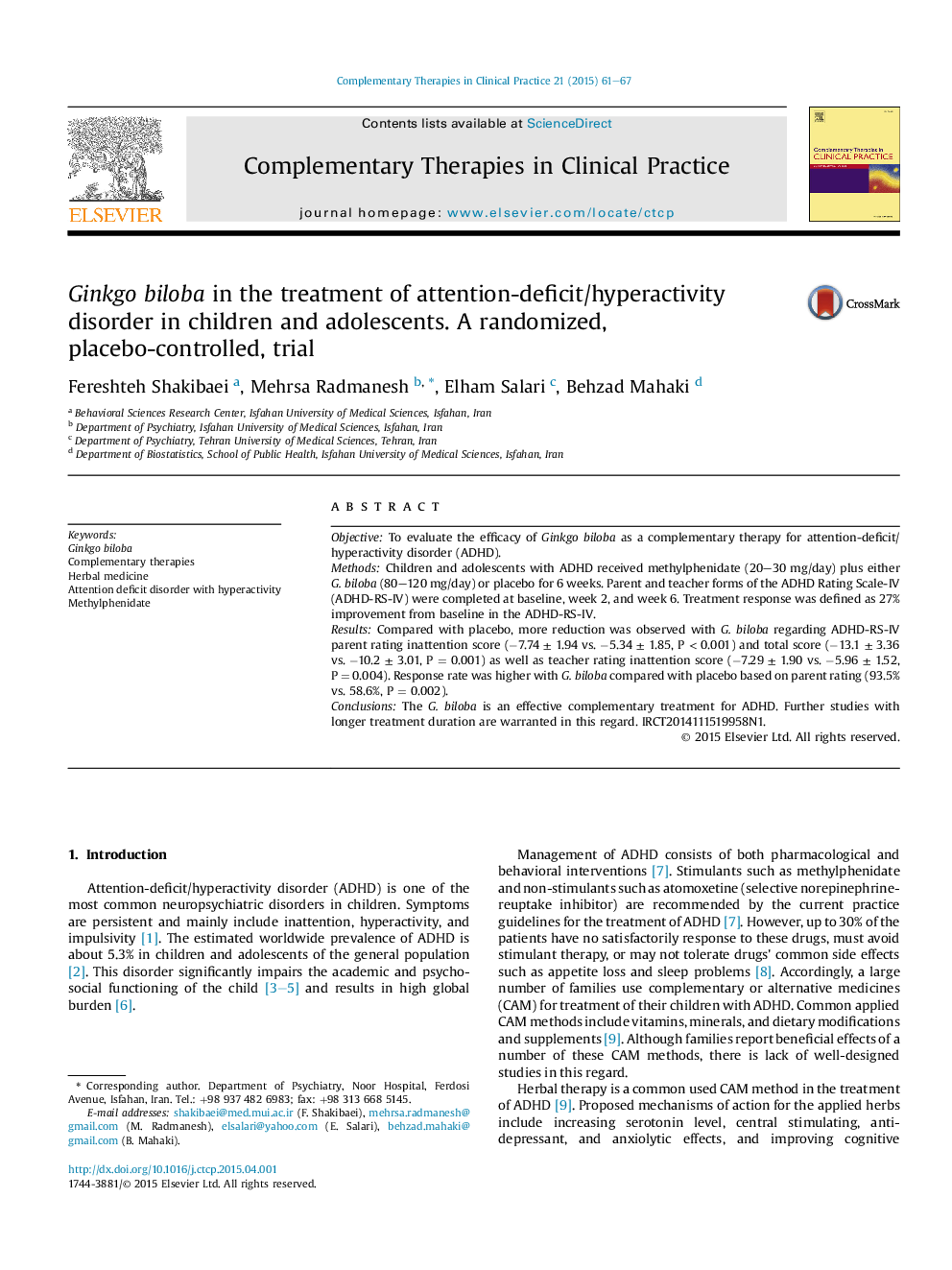| Article ID | Journal | Published Year | Pages | File Type |
|---|---|---|---|---|
| 2628735 | Complementary Therapies in Clinical Practice | 2015 | 7 Pages |
•Children and adolescents with ADHD received methylphenidate plus either Ginkgo biloba or placebo for 6 weeks.•G. biloba improved inattention symptoms but has no significant effects on hyperactivity-impulsivity symptoms.•G. biloba increased the clinical treatment response rate of methylphenidate by 35%.•Side effects of G. biloba were limited and mild.•The G. biloba is an effective and safe complementary treatment for ADHD.
ObjectiveTo evaluate the efficacy of Ginkgo biloba as a complementary therapy for attention-deficit/hyperactivity disorder (ADHD).MethodsChildren and adolescents with ADHD received methylphenidate (20–30 mg/day) plus either G. biloba (80–120 mg/day) or placebo for 6 weeks. Parent and teacher forms of the ADHD Rating Scale-IV (ADHD-RS-IV) were completed at baseline, week 2, and week 6. Treatment response was defined as 27% improvement from baseline in the ADHD-RS-IV.ResultsCompared with placebo, more reduction was observed with G. biloba regarding ADHD-RS-IV parent rating inattention score (−7.74 ± 1.94 vs. −5.34 ± 1.85, P < 0.001) and total score (−13.1 ± 3.36 vs. −10.2 ± 3.01, P = 0.001) as well as teacher rating inattention score (−7.29 ± 1.90 vs. −5.96 ± 1.52, P = 0.004). Response rate was higher with G. biloba compared with placebo based on parent rating (93.5% vs. 58.6%, P = 0.002).ConclusionsThe G. biloba is an effective complementary treatment for ADHD. Further studies with longer treatment duration are warranted in this regard. IRCT2014111519958N1.
